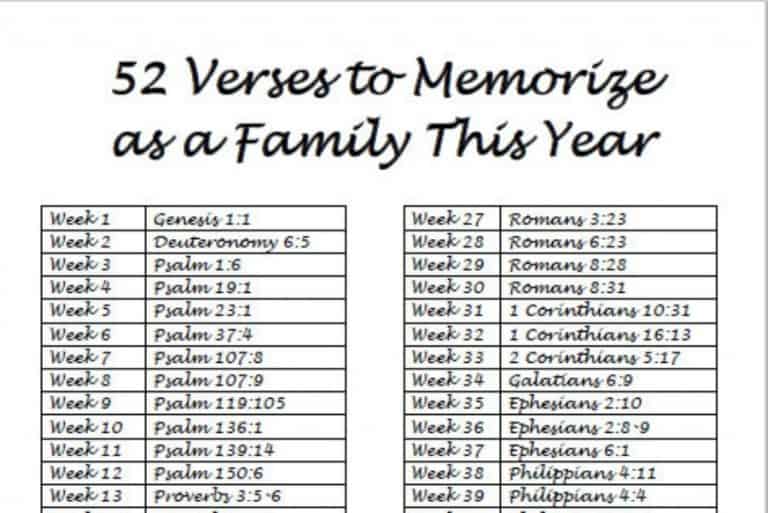Choosing Love When Infatuation Fades | A Marriage Devotional on 1 Corinthians 13
I recently had the privilege of sharing a marriage devotional on 1 Corinthians 13 at a bridal shower. I have altered it for publication here. You are free to use it for your own wedding ceremony, bridal shower, vow renewal, or other similar ceremony with proper credit. This is not authorized for reproduction or for profit without prior written consent.
Choosing Love When Infatuation Fades – A Marriage Devotional
If I had to give today’s devotional a title, I’d call it “Choosing Love When Infatuation Fades,” as we’ll be taking a look at what “Love is…” as it’s defined by the apostle Paul through the inspiration of the Holy Spirit in 1 Corinthians 13.
Let’s take a minute to look at 1 Corinthians 13 together:
“Love is patient and kind; love does envy or boast; it is not arrogant or rude. It does not insist on its own way; it is not irritable or resentful; it does not rejoice at wrongdoing, but rejoices with the truth. Love bears all things, believes all things, hopes all things, endures all things. Love never ends.” (1 Corinthians 13.4-8a, ESV)
1 Corinthians 13 is often referred to as “The Love Chapter” in Scripture and is frequently read in marriage ceremonies as a charge to the bride and groom to love one another well. I don’t know if this passage will be part of your ceremony in a few weeks, but today, I want us to take some time to consider it together as you think about how to love your husband well.
As an almost 17-year veteran of marriage, I can speak from experience when I say that the infatuation you’re feeling for your future spouse right now will fade, and there will be many times when loving him is the last thing you feel like doing. But the covenant you’re about to make says that you will choose to love him for the rest of the days you share here on earth, so you’re going to need to know how to do that when the feelings of love fade away.
1 Corinthians 13 – The Love Chapter
1 Corinthians is a letter from Paul to a church body who was experiencing disunity and division – they were arguing amongst themselves and being anything but loving toward one another. 1 Corinthians 13 – though it was not written to individuals in the context of marriage – can provide us with a blueprint of how to love one another well when we are feeling anything but infatuation toward one another.
In this passage, Paul defines what “love is” from a context of God’s unconditional (or agape) love toward us with a charge for us to emulate His love toward one another. As we’ll see, none of the definitions or depictions of love in this passage are reliant on our feelings; they are not self-serving or inward-focused; they are not conditional or a response to receiving love; they are not passive. Each of these depictions of what “love is” is a chosen heart position resulting in intentional action.
What is Love?
Let’s take a closer look at each of these “definitions” of what “love is” using other passages of Scripture to help us better understand how each aspect of love is to be lived out in light of how God loves us…
Love is patient.
2 Peter 3:9 says, “The Lord is not slow to fulfill his promise as some count slowness, but is patient toward you, not wishing that any should perish, but that all should reach repentance.” As we consider what it means to love through patience, we ought to remember that God has exercised great patience with us, calling us to repentance in order that we might have a relationship with Him.
One of the greatest lessons I’ve learned about patience in marriage is that God’s timing is never my timing, especially when it comes to how the Holy Spirit is working in and through my husband’s life.
Love is kind.
As I considered what Scripture to use to help define kindness, I was drawn to two passages:
- The first is Romans 2:4 which describes the power of God’s kindness toward us: “Or do you presume on the riches of his kindness and forbearance and patience, not knowing that God’s kindness is meant to lead you to repentance?“
- And the second is Ephesians 4:32 which calls us to “Be kind to one another, tenderhearted, forgiving one another, as God in Christ forgave you.“
How great the kindness of God is that He draws us to Himself in order to show us forgiveness, and how powerful it is when we can show kindness to one another through forgiveness. In marriage, just as in any relationship, there will be plenty of opportunities to show kindness through forgiveness.
Love does not envy.
In the greater context of 1 Corinthians, this depiction of what “love is” seems incredibly relevant – the believers were arguing about which spiritual gifts were “the best” and were attempting to create a sense of hierarchy amongst themselves.
However, as we consider what this means in terms of an individual relationship – specifically in light of marriage – I want us to consider Proverbs 14:30: “A tranquil heart gives life to the flesh, but envy makes the bones rot.” This verse contrasts the negative quality of envy with the positive quality of having a tranquil heart.
I find it’s way too easy at times – especially when I’m finding it difficult to choose love – to look around and see others who seem to have such a better relationship than I’m currently experiencing. If I allow myself to dwell on the feelings of envy – i.e. why can’t my marriage look like their marriage? – instead of choosing to rejoice in the relationship God has given me, I find myself becoming more and more discontent with my marriage. Envy only leads to rot.
Love does not boast.
Once again, this depiction of what “love is” points directly at the circumstantial struggle of the original audience, but it does not make it any less applicable for us today.
Jeremiah 9:23-24 says, “Thus says the Lord: ‘Let not the wise man boast in his wisdom, let not the mighty man boast in his might, let not the rich man boast in his riches, but let him who boasts boast in this, that he understands and knows me, that I am the Lord who practices steadfast love, justice, and righteousness in the earth. For in these things I delight, declares the Lord’.”
Along with the previous exhortation to avoid envy, this admonishment reminds us that nothing we have – including our current relationship status – is ours apart from the goodness of God in our lives.
Love is not arrogant.
Oh, how I love to be right and to know the right answer to any question. And in my marriage – and really, any relationship I have – it can be a real struggle not to flaunt or argue about the fact that I’m right or that I know the answer.
Proverbs 16:1-3 are verses I need to remind myself of frequently: “The plans of the heart belong to man, but the answer of the tongue is from the Lord. All the ways of a man are pure in his own eyes, but the Lord weighs the spirit. Commit your work to the Lord, and your plans will be established.” But the real kick-in-the-pants for me is in verse 5: “Everyone who is arrogant in heart is an abomination to the Lord; be assured, he will not go unpunished.”
Ouch. To be loving to my husband is to keep my mouth shut AND to choose a heart-posture of humility, even when I am right and he is wrong, because the reverse is true just as often if not more so.
Love is not rude.
Ephesians 4:31 reminds us to “Let all bitterness and wrath and anger and clamor and slander be put away from you, along with all malice” and comes on the heels of verse 29 which exhorts us to “Let no corrupting talk come out of your mouths, but only such as is good for building up, as fits the occasion, that it may give grace to those who hear.”
How we speak and what we say have a huge impact on the quality of our relationships – especially our marriages. As the persons who are the closest to us, we tend to let down our guard around our spouses, often leaving the worst of ourselves for them.
And while allowing them to see the real-est version of ourselves is appropriate, it’s not loving for us to leave them with the dregs or take out our bad days on them. Loving others well means guarding our tongues and using the power of our speech to build one another up.
Love does not insist on getting its own way.
I could probably leave this one here and walk away with a mic drop, but speaking from experience, I know this can be one of the hardest things about loving another person well. And so, I want us to take a quick look at Philippians 2:3-5: “Do nothing from selfish ambition or conceit, but in humility count others more significant than yourselves. Let each of you look not only to his own interests, but also to the interests of others. Have this mind among yourselves, which is yours in Christ Jesus“.
The heart position of Christ toward us was one of humility and selflessness, and so we ought also to emulate this type of love toward one another. In fact, Ephesians 5:21 reminds us that “submitting to one another [is] out of reverence to Christ.”
Love is not irritable.
Sometimes when I read through this list of what “love is” (or in this case, isn’t), I wonder if Paul could read my mind in the future when he wrote this letter. In any case, the Holy Spirit has no trouble convincing me that this is an area I desperately need to work on when it comes to loving others (especially my husband) well.
Proverbs 29:11 tells us, “A fool gives full vent to his spirit, but a wise man quietly holds it back.” And James 1:20 reminds us that “the anger of man does not produce the righteousness of God.” I’ve gotten pretty good at keeping my mouth shut, but that doesn’t mean I’m not easily provoked, stewing it over in my mind.
Not only do we love well by holding our tongues, but we must “take every thought captive to obey Christ” as Paul reminds us in 2 Corinthians 10:5b, choosing not to dwell on irritations and allow them to cause disunity in our relationships.
Love is not resentful.
At first glance, I couldn’t easily define what this looked like in terms of God’s love for us, so I decided to dig a little deeper. I did a word study on the word that is translated as “resentful” here, and I found that it has a connotation of “holding against” or “counting against”.
With that definition in hand, I immediately found myself in Romans chapter 4, verses 7 and 8, where Paul reminds us of King David’s words in Psalm 32: “Blessed are those whose lawless deeds are forgiven, and whose sins are covered; blessed is the man against whom the Lord will not count his sin.”
What a powerful reminder of God’s love for us that once we’ve accepted Christ as our Savior, He no longer holds our sins against us! And what an example for us as we seek to love others well – to remember that once we forgive the wrongs committed against us, we should never use them against the other person.
Love does not rejoice in wrongdoing.
This is another definition of love that seems pretty obvious and even easy, but when we take a closer look, it might not be quite as simple as it first appears. A deeper understanding of the word “rejoice” here can mean to “gladly welcome”. Romans 6:1-2 says, “What shall we say then? Are we to continue in sin that grace may abound? By no means! How can we who died to sin still live in it?”
Not only should we not gladly welcome or participate in wrongdoing against one another, but when we see one another caught in the throes of sin, we should be willing to speak out in love against that sin.
I think we’ve started to turn a corner on this list of what “love is” that Paul gave us… now that we know what love isn’t or doesn’t do, we’re ready to dig into how love is lived out.
Love rejoices with the truth.
In John 17:17, Jesus prays for His disciples: “Sanctify them in the truth; your word is truth.” What is truth? The Word of God is truth. My feelings are not truth. Your feelings are not truth.
In order to love others well, we must identify with and be sanctified by the truth of God’s Word. Knowledge of the Word of God is critical for its use in our sanctification and our use as a vessel of sanctification in the lives of others.
Love bears all things.
Relationships are never 50/50, especially marriage. If you go into marriage thinking you’re going to meet your spouse halfway, you’ve set yourself up for failure and you have a long road ahead of you. Instead, go into marriage ready to give 100% of yourself at any moment.
Galatians 6:2 tells us that we are to “bear one another’s burdens, and so fulfill the law of Christ.” Marriage, like any relationship, is a partnership, and there may be times when, in order to love well, you will have to bear the full weight of the relationship.
This can be overwhelming to consider, but have hope… because 2 Peter 5:7 reminds us to “cast all your [burdens] on [Jesus], because he cares for you.”
Love believes all things.
This doesn’t mean you should believe every word that comes out of your spouse’s mouth (though I pray that you can), but rather it encourages you to know and believe the promises of God for one another. In Philippians 1:6, Paul says, “And I am sure of this, that he who began a good work in you will bring it to completion at the day of Jesus Christ.”
If you both have a personal relationship with Jesus, that means you’re both on a journey of sanctification to become more Christ-like until the day you enter Glory.
This is not going to look the same for either of you, and there will be times when you find yourself frustrated because the process for one or both of you is taking longer or looks differently than you would hope. BUT, living in the belief that Philippians 1:6 is true, you can choose to love one another in spite of your shortcomings and sin nature.
Love hopes all things.
Hope is not wishful thinking but sure confidence that what is promised will be. Hebrews 10:23-24 admonishes us to “hold fast the confession of our hope without wavering, for he who promised is faithful. And let us consider how to stir up one another to love and good works“.
We must hold fast to our hope in Christ when life throws us curveballs, and encourage one another to love and good works. Hold on to the promise that Romans 8:28 offers: “And we know that for those who love God all things work together for good, for those he called according to his purpose.”
Love endures all things.
Romans 5:3-4 remind us to “rejoice in [your] sufferings, knowing that suffering produces endurance, and endurance produces character, and character produces hope“. When life and/or love get tough, hold on. Cling to God. Cling to His truth. He is working all things together for your good and His glory!
Love never ends.
We see examples all around us of love that has ended. But the good news is that the love of God – His agape love – is everlasting. 1 Corinthians 13:13 says, “So now faith, hope, and love abide, these three; but the greatest is love.”
The word “abide” in this verse has a connotation of “never departing”, and according to Thayer’s Greek Lexicon, this love is “something [that] has established itself permanently within my soul, and always exerts its power in me.” God’s love never ends, because “God is love” [1 John 4:8].
And because God has given us the example of never-ending love, we can emulate His love for us as we seek to be His vessels of love toward others.
How to Love Your Spouse Well
Wow. That’s a lot. And as we consider the list of what “love is” (and what love does and doesn’t do) we can quickly become overwhelmed and defeated, because, if we are at all honest, without infatuation, it’s pretty much next to impossible to choose to love well according to how love has just been defined for us by Paul.
The good news is that this is not a laundry list of “do”s and “don’t”s for us to accomplish and check off. God knows that we cannot successfully love well on our own. He sets an example for us to strive toward, but He does not expect us to do it in our own ability or power. Only He can love perfectly, but with the help of the Holy Spirit, we can be a vessel of His love to others.
Accessing the Fruit of the Spirit
And for this, I want to briefly turn our attention to Galatians chapter 5:
Verse 16 of Galatians 5 states: “But I say, walk by the Spirit, and you will not gratify the desires of the flesh.” And verses 22 through 25 say: “But the fruit of the Spirit is love, joy, peace, patience, kindness, goodness, faithfulness, gentleness, self-control; against such things there is no law. And those who belong to Christ Jesus have crucified the flesh with its passions and desires. If we live by the Spirit, let us also keep in step with the Spirit.”
This passage reminds us that as we walk in the Spirit, He produces fruit in our lives, and the primary fruit that is displayed is love. But did you notice how many other definitions of what “love is” from 1 Corinthians 13 are also mentioned here in Galatians 5 as fruit that the Spirit produces in our lives as we walk with Him?
- Joy – love rejoices in the truth
- Patience – love is patient
- Kindness – love is kind
- Goodness – love does not rejoice in wrongdoing
- Faithfulness – love never ends
- Gentleness – love is not irritable
What a refreshing and encouraging thought to realize that we don’t have to produce this love on our own – we only need to walk in the Spirit and allow Him to work in and through us in order to love one another well!
A Charge to Choose Love
And so my charge and encouragement to you today – and really, to each one of us, myself included – is to walk in the Spirit, allowing Him to produce a love in you that outlasts infatuation. A love that will truly never end – one that will withstand even the hardest moments of your life.
No matter whether we are called to love a spouse, a child, a friend, an extended family member, or even a stranger, we can do so confidently knowing that it’s the love of God in our lives that makes it possible for us to walk in the Spirit and be a vessel of that love to those around us.
Looking for additional resources for improving your marriage?
- Praying God’s Word for Your Marriage
- 15 Bible Verses to Pray for Your Marriage
- 5 Ways to Prioritize Your Marriage This Year
- Perfect Date Ideas for Busy Parents
- 5 Tips for Better Marriage Communication







